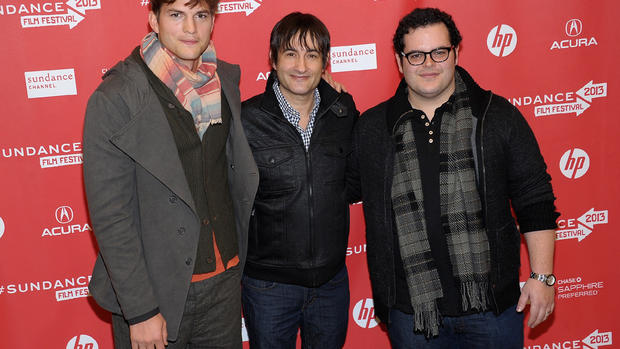Mariel Hemingway runs from crazy at Sundance Film Festival
PARK CITY, Utah Mariel Hemingway says she has left the bad kind of crazy behind, and all that's left is good crazy.
Hemingway came to the Sundance Film Festival for the documentary "Running from Crazy," which chronicles the family history of mental illness that led to the suicides of seven relatives, including sister Margaux and grandfather Ernest Hemingway.
Directed by Barbara Kopple, with Oprah Winfrey an executive producer, the film features segments with Mariel opening up about how she put her own depression and suicidal thoughts behind her.
"I can honestly say that I do believe that now bad crazy is gone. Good crazy is still around, but I truly am no longer depressed," Hemingway, 51, said in an interview alongside Kopple. "It's gone. I can honestly say that it's been years. I laugh at myself now, which is fun."
Kopple also found a treasure trove of footage from a documentary Margaux was shooting about grandfather Ernest, material that shows the different paths of the two sisters. A supermodel whose acting career fizzled even as Mariel's flourished, Margaux died of a drug overdose in 1996.
"Running from Crazy" explores the bravado of Ernest Hemingway -- the boozing, bullfight-loving, womanizing Nobel Prize winning author -- and how it concealed a troubled soul. He put a shotgun to his head and killed himself in 1961, a few months before Mariel was born.
The film also reveals a family in denial -- Mariel, Margaux and oldest sister Joan, known to the family as Muffet -- raised by heavy-drinking parents who had violent fights as the alcohol soaked in and who refused to acknowledge what Mariel calls a family curse of mental illness.
Hemingway shares a touching reunion with Muffet, who was in and out of mental hospitals for years, shows off the rigorous exercise and self-help techniques she has used to overcome depression and reveals dark family secrets, including her belief that her father sexually abused her older sisters.
"What Mariel has, I mean, she's the dream of a documentarian, because you sit at the table with her and talk to her, and everything comes out, because she has a higher purpose for it. She really wants to shed light on suicide and mental illness," said Kopple, a two-time Academy Award winner for the documentaries "Harlan County, U.S.A." and "American Dream."
"If people see that she's doing it and how she has constructed such a healthy, wonderful lifestyle, that they can do it, too," she said.
Mariel Hemingway also discusses the bad blood between her and Margaux, who starred in the 1976 film "Lipstick" and got Mariel a supporting role that launched her little sister's acting career.
Critics were not kind about the performance of Margaux, who soon wound up in cheesy action and horror movies such as "Killer Fish." But Mariel received solid praise, earned an Oscar nomination three years later for Woody Allen's "Manhattan" and went on to star in such films as "Personal Best" and "Star 80."
The film includes a scene in which Mariel visits her grandfather's Idaho house and the room where he killed himself. She also stops by the graves of her parents, sister and grandfather, remarking sadly about the bottles of Jack Daniels that his fans leave on his gravestone.
The title comes from Hemingway's comment that she has spent her life "running from crazy," trying to escape what seemed a doomed legacy for herself and her two daughters, with whom she discusses the family history in the film.
"Some people are like, 'Wow, that's a heavy title.' Well, I don't see it as a heavy title. I'm like, 'Dude, thank God,'" Hemingway said. "Crazy's gone. Sometimes I'm running with crazy, but now it's a different kind of crazy. There's fun in my life and I'm joyful. But there was a time when I really was not. A time, my entire life, probably 40 years of really trying to not be something that I came from."
